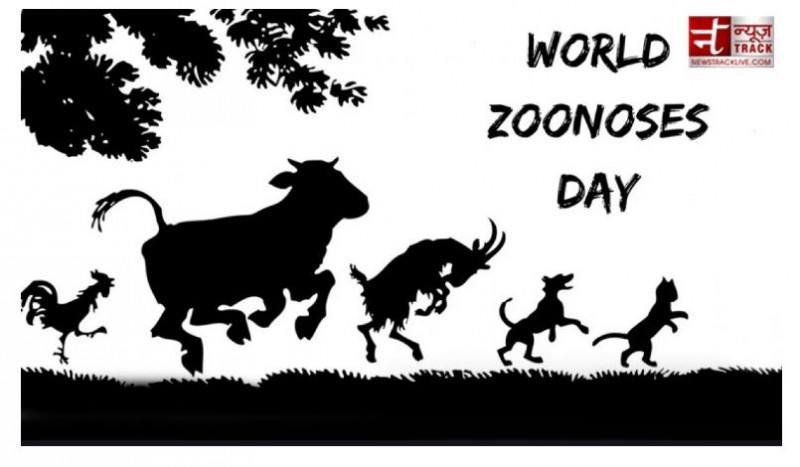
World Zoonoses Day, observed annually on July 6th, serves as a global reminder of the critical importance of zoonotic diseases, their impact on human and animal health, and the need for collaborative efforts to prevent and control them. Zoonoses are infectious diseases that can be transmitted between animals and humans, posing significant challenges to public health, animal welfare, and environmental sustainability. This article explores the significance of World Zoonoses Day, highlights key zoonotic diseases, and emphasizes the importance of One Health approach in combating these global health threats.
Understanding Zoonoses: Zoonotic diseases have been a part of human history since ancient times, and their impact on society continues to this day. These diseases can be caused by bacteria, viruses, parasites, or fungi and are transmitted through direct contact with infected animals, consumption of contaminated food or water, vector-borne transmission, or inhalation of infectious particles. Notable zoonotic diseases include rabies, Ebola, avian influenza, Zika virus, Lyme disease, and COVID-19, among others.
World Zoonoses Day: Raising Awareness and Taking Action: World Zoonoses - Day was established to commemorate the work of Louis Pasteur, a French scientist who successfully administered the first rabies vaccine to a human on July 6, 1885. This milestone marked a significant step forward in the prevention and control of zoonotic diseases. The day aims to raise awareness about zoonoses, promote the One Health approach, and encourage collaboration among various sectors, including human and animal health, agriculture, environment, and research.
The One Health Approach: The One Health approach recognizes the interconnectedness of human, animal, and environmental health. By fostering collaboration among professionals from diverse fields, such as medicine, veterinary science, epidemiology, ecology, and agriculture, the One Health approach seeks to address zoonotic diseases comprehensively. This holistic approach emphasizes the importance of early detection, surveillance, and response to outbreaks, as well as the need for effective prevention and control strategies.
Prevention and Control Strategies: Preventing and controlling zoonotic diseases require a multi-faceted approach that encompasses various strategies. These include:
1. Enhanced surveillance systems: Strengthening disease surveillance networks to detect and monitor zoonotic diseases promptly.
2. Vaccination campaigns: Developing and implementing vaccines to protect humans and animals from zoonotic diseases.
3. Improved hygiene practices: Promoting good personal hygiene, sanitation, and food safety measures to prevent the transmission of zoonoses.
4. Wildlife conservation: Preserving natural habitats and promoting responsible interaction with wildlife to minimize the risk of zoonotic disease transmission.
5. Antimicrobial stewardship: Promoting responsible use of antibiotics in both human and animal health to combat antimicrobial resistance.
6. Public awareness and education: Educating communities about zoonoses, their prevention, and the importance of early detection and reporting of suspected cases.
World Zoonoses Day serves as a global platform to advocate for the prevention and control of zoonotic diseases. By raising awareness, promoting the One Health approach, and encouraging collaboration among various sectors, we can mitigate the impact of zoonoses on human and animal health. As we commemorate this day, let us renew our commitment to global health and work together towards a safer and healthier future for all.
Remembering Ram Vilas Paswan of Bihar Politics on His Birth Anniversary
PV Zayed Khan: Celebrating the Birthday of a Former Hindi Film Actor and Producer
PV Sindhu: Celebrating the Birthday of India's Badminton Star on July 5